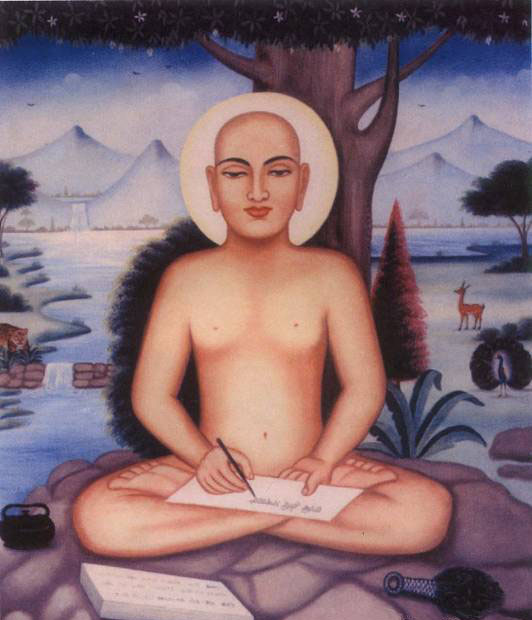What is Expected of A Jain?
 |
We all know that a Jain - shraavak has 6 duties to be performed and they are as under :
01) Deva pooja - worshiping the true God.
02) Guru upaasthi - serving the true Teacher / Guru.
03) Swaadhyaay - study of Jain scriptures to know the self.
04) Samyaamam - control and concentration on the self - soul.
05) Thapa - remaining bereft of any kind of longing for worldly possession.
06) Dhaan - giving away those that are useful and helpful to other living beings.
This should be understood both from the vyavahaar and nischaya points of view.
The first one is as you observe is Deva Pooja.
Purpose and meaning : Worshipping the all knowing - Thirthankar is called Deva Pooja.
Deva here means the one who has realized one self and manifests one self fully and remains in complete blissfulness forever and forever without any hindrance.
Pooja is worshipping the one explained herein above for the simple and only purpose of attaining the same level of whom one worships. True God has nothing to do with this world and once realizes oneself - Siddhathva, reaches the top of the world - siddhalaya and remains there for all the times to come.
Pooja to be done with “samyakthva” for the only purpose of self elevation in the spiritual ladder and not for any worldly acquisition and enjoyment.
Occasions : Three times a day is the occasions - “sandhiya kaal”to perform pooja. They are 01) the meeting of night and day - morning, 02) the meeting of morning and eveing – noon and 03) the meeting of day and night - evening. Besides, there are few poojas, which are performed day long for few days such as Indra Dhvaja pooja, Kalpa Dhruma pooja, Siddha chakra vidhan, Santhi vidhan, Pancha Parameshti vidhan etc.
But due to the passage of time and the decline in the faith in Jina Dharma, the Pooja is now done only once in the morning and that too by a few or by a hired poojaari. Such poojas have very little effect on the person who wishes to do pooja, as pooja has to be done only by self for the benefit of the one self.
Benefits : Pooja to the true God - Teerthankar, if done with involvement and dedication - bhaava and dhravya pooja, to the extent it is done so, the aspirant 01) escapes from the inflow of “paap” - bad karmas, 02) has inflow of “punnya” - beneficial karmas and 03) the effect of “paap”- baneful karmas if fruitions during that time pooja, the intensity of it will not be felt by the aspirant.
Other benefits : It may pave the way for study and practice to elevate one self to secure “Samyakthva” - “aviratha samyak drhishti” 4th Gunasthan and go on to live a life of a ‘shraavak’- partial observer of vows - 5th Guansthan. It may ultimately lead to the liberation of soul from the cycle of birth and death. This may provide for one a living of simplicity, piety, serenity and above all a sense of commitment and satisfaction.
Conclusion : Above is only a speck of the world of pooja and may be with mistakes and those pandits and scholars who read may take the right and leave the rest. If any is right it is of “Kevelin” and the rest are mine.
-----------------------------------------------------
Article Courtesy : Mr. Sreepalan, Acharya Kund Kund Educational Foundation
-----------------------------------------------------
Mail to : Ahimsa Foundation
www.jainsamaj.org
R030503